White Sands National Monument - Member Hike
| Hike Name: | White Sands National Monument |
|---|---|
| Country: | United States |
| State: | New Mexico |
| Nearby Town: | Alamogordo |
| Rating: |  |
| Directions: | Drive West from Alamogordo on US Hwy 70 about 16 miles. The Monument is on the North side of the road. |
| Total Hike Distance: | 2.45 miles |
| Hike Difficulty: | Easy |
| Permit Required: | Yes |
| Hike Type: | Roundtrip, Loop Hike |
| Hike Starts/Ends: | Scenic Drive Parking Area |
| Trails Used: | The only trail there is: Backcountry Trail |
| Backcountry Campsites: | Yes |
| Backcountry Water Sources: | None |
| Management: | National Park Service |
| Contact Information: | By Mail P.O. Box 1086 Holloman AFB, NM 88330 By Phone Visitor Information (505) 679-2599 Visitor Information (505) 479-6124 WEBSITE http://www.nps.gov/whsa/home.htm |
| Best Season: | Winter, Spring, Fall |
| Users: | Hikers, Dogs |
| Road Conditions: | Primary Paved Roads, Maintained Gravel or Dirt Roads |
| Hike Summary: | This is sort of a nothing little backpacking trip, with several nice additions. White Sands is the largest deposit of gypsum in the world, and is actually visible from space. Camping is only allowed in one area of the monument, and there are only a few camping spots in that area. You have to get a permit in person on the day of use from the park headquarters, located at the entrance. Permits can only be acquired from 8:00 AM to 4:00 PM, and are issued on a first-come, first-serve basis. No water is available in the park, and no fires are allowed at any time. Total distance on the hike is just short of 2 1/2 miles, although it will seem further because hiking is more difficult in 8 inches of loose sand. There is a strict carry it in, carry it out policy, and this includes human waste. Take plastic bags for this purpose. This camping trip is worth the time simply because it is so easy to do and so unique. While daytime temperatures may reach over 100 degrees, the sand holds no heat, and night temps even in the summer will be down in the 50's. Much of the local wildlife has adapted to life in the dunes, and has turned white. Snakes, insects, and mammals alike have adapted their camoflage to suit. Also, the dunes are constantly moving East, and leave behind them pillars of gypsum held together by tree and bush roots. Sometimes these pillars reach 20 feet tall. All in all, its an interesting overnight camp, and one unlike any other in the world. |
Recommended
Trip Reports
| Date | Rating | Duration | Hiker | |
|---|---|---|---|---|

|
September 10, 2005 |  |
5 hours | Ferret |
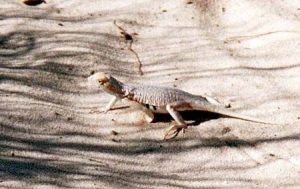
|
May 20, 1996 |  |
1 day, 12 hours | Oshow |
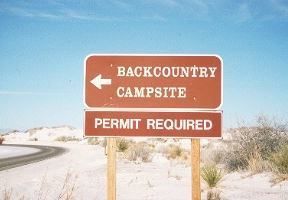
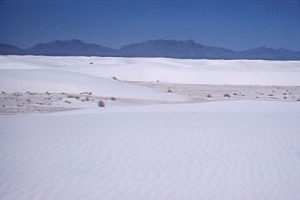
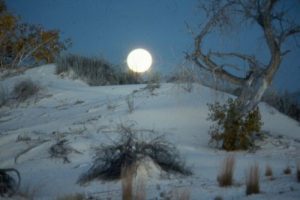
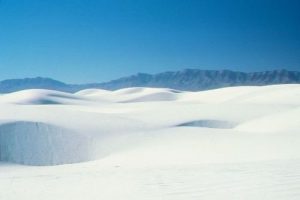



There are no comments yet.